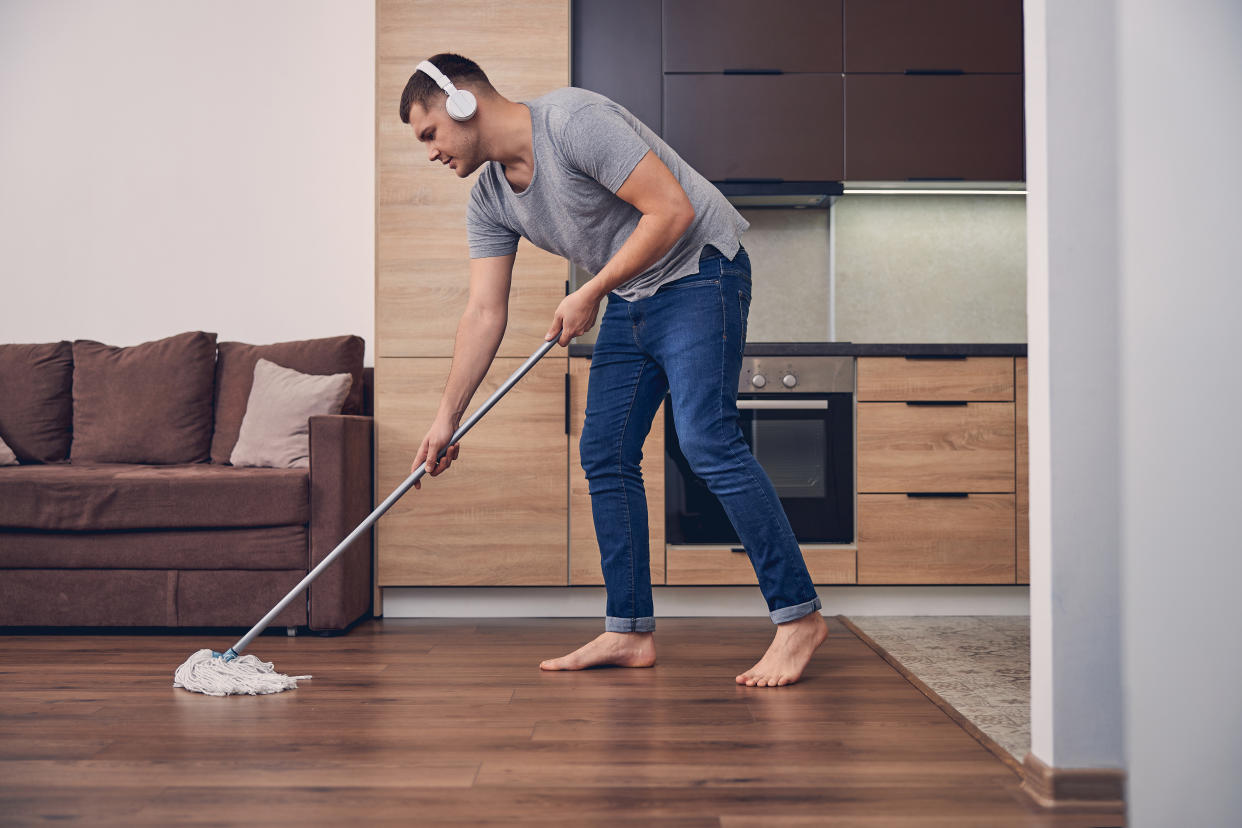Are your cleaning products out of date? Here's why it matters

When it comes to food, we know our use-by from our best-before, and are dab hands at managing what's in the fridge to keep it fresh.
But the vast majority of us don't even consider how old our cleaning products are. A new survey from Tombola (LINK) has found that 75% of Brits have never checked cleaning products for expiry dates.
The firm surveyed 1,000 Brits to reveal how many of us are actually aware of expiry dates on the items we use to clean our house. And it turns out the answer is "...expiry dates?"
According to the study, three quarters of adults surveyed have never checked their cleaning products. Which means the majority could be using products that are not cleaning their house as promised, providing room for germs and bacteria to grow.

A confused 13% didn't know cleaning products could expire, while one in eight said they didn’t notice when products expired.
But with items such as bleach breaking down after six months and becoming less effective, it’s something the sensible householder should know about. Currently, only 8% of us check regularly.
So to avoid wasting your elbow grease on products that are less effective that they once were, here's what you need to check out.
1 Always check your shop bought cleaning products
Most cleaning products tend to have a shelf life of six months to two years.
If you are one of the 4% that never throws out cleaning products, now might be the time to check under your sink for that crusty old brass polish and clogged up drain cleaner. This also might ensure you only buy what you need to avoid throwing out what you don’t use.
Read more: Tackle every room in your house with these deep cleaning tips
2 Empty your hoover after every few uses
If you are regularly vacuuming, particularly if you have pets, empty the vacuum cleaner after every few uses - not just when the bag or cylinder is full to bursting. Although, some experts state you should clean it after every use to ensure that germs and bacteria don’t get a chance to take hold in there.
It’s also recommended that you fully clean the vacuum every 12-18 months.

3 Replace cleaning cloths every couple of months
If you use cloths or cleaning rags, ensure you're properly cleaning them. Wash weekly and leave them to dry properly - and replace every couple of months. The same applies to microfibre cloths.
It's also much more sustainable than using wipes daily.
4. Only use homemade products for the week
Cleaning using everyday household products is a great way to save money.
But it’s important to remember they have a shorter lifespan than shop bought products, and need to be used right away.
If that's too much trouble, cleaning with natural products you can buy, such as block soap, is also more sustainable.
5 Use Zoflora within two weeks
If you are using Mrs Hinch favourite Zoflora, the company recommends using the diluted version within two weeks . After that, it won’t have the same impact when it comes to cleaning your home.
So, only dilute the amount that you believe you can use to avoid any waste. You can also use a reusable dispenser to avoid throwing away plastic regularly.
Read more: This Weekly Cleaning Schedule Will Keep Your Home Consistently Tidy

6 Wash your tea towels at the end of the week
If you use your tea towel to wipe away spills, wash them daily . If you have three to four tea towels, you can rotate them and then put them in a wash together at the end of the week (to save energy) when they have been used.
But make sure you don’t throw damp tea towels in your laundry basket, where mould could potentially grow.
7 Replace your broom every three months
Your sweeping brush will pick up a whole load of germs, so it’s important to keep on top of it. Clean and shake well after every use. Experts also suggest replacing it every three months or so. See Trigger's broom for details.
8 Change your mop head every two months
On the subject of your floors, it’s important to change your mop head every two months - especially when cleaning particularly well-worn/trodden areas.
You should, however, clean your mop after every use and allow it to fully air dry, which could help prolong its lifespan. If not, you could be spreading germs and anything else you picked up the last time you used it on your floors.

9 Replace your sponges every two weeks
It’s recommended by experts that you replace your sponges every two weeks . But they should be cleaned and wrung out to dry properly after every use.
However, if you notice your sponge has a funky smell - or it looks visibly dirty after you have cleaned it - it’s time to throw it away.
10 Clean your household bin twice a week
To stop the bin becoming a breeding ground for bacteria and germs, wipe down the bin and lid at least twice a week.
When you do take out the bin bag, hose it down outside (if you have space). Use hot water and vinegar and give it a good scrub before you pop another bag in the bin.


